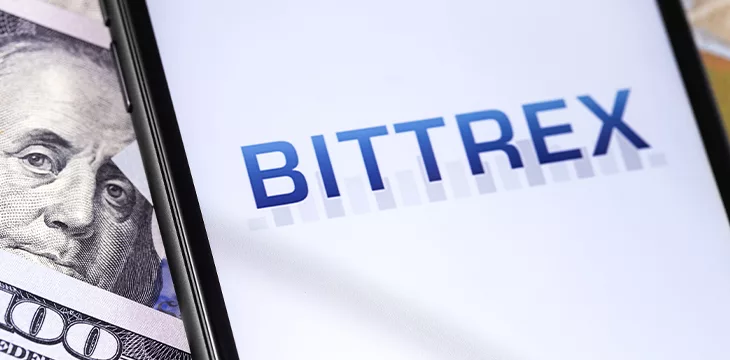|
Getting your Trinity Audio player ready...
|
Digital asset exchange Bittrex Inc. will pay $24 million to settle charges with the U.S. Securities and Exchange Commission (SEC), the regulator announced today. The charges include Bittrex’s co-founder and former CEO, William Shihara, as well as the company’s international affiliate Bittrex Global GmbH.
The charges stem from a complaint in the U.S. District Court for Washington’s Western District in April 2023. The SEC alleged Bittrex offered and sold digital assets to customers in the U.S. as an unregistered broker, exchange, and clearing agency. Furthermore, it said Bittrex and Shihara (CEO from 2014 to 2019) advised asset listers to scrub their social media channels of statements that might arouse the interest of regulators looking into unregistered securities.
Bittrex had made “at least $1.3 billion” in revenue from customers, many of which were U.S.-based, putting them “at significant risk,” the SEC said. Shortly after the charges were announced in April, Bittrex Inc. announced it would withdraw from the U.S. market, and in May 2023, the company filed for Chapter 11 bankruptcy protection in Delaware.
This comes on top of a $29.3 million settlement penalty imposed on Bittrex by the U.S. Department of the Treasury in October 2022 over its lax anti-money laundering procedures. The exchange had allowed accounts based in Cuba, Iran, Syria, and Crimea to conduct over 116,000 trades worth over $263 million, including several high-value individual transactions of over $1 million each.
Bittrex’s SEC penalties
As part of this week’s SEC settlement, all parties agreed to enjoin (prohibit) Bittrex and Shihara from further violations of the Securities Exchange Act 1934, Sections 5, 15(a), and 17A. Bittrex Global agreed not to violate Section 5. The two companies will also pay a $14.4 million disgorgement, $4 million in pretrial interest, and a $5.6 million civil penalty.
“Today’s settlement makes clear that you cannot escape liability by simply changing labels or altering descriptions because what matters is the economic realities of those offerings,” Gurbir Grewal, Director of the SEC’s Enforcement Division, said.
“For years, Bittrex worked with token issuers to ‘scrub’ their online statements of any indicia that they were investment contracts—all in an effort to evade the federal securities laws. They failed.”
SEC chair Gary Gensler had hit out at claims by exchanges that the U.S. offered no “regulatory clarity” that would enable them to work within legal parameters. The problem, he said, was more a lack of regulatory compliance in the industry.
Grewal’s statement and the SEC complaint suggest digital asset exchanges are well aware of existing laws and the risks they may face in breaking them. While complaining about a lack of regulatory clarity in the U.S., they simultaneously conceive workarounds and loopholes based on facets of blockchain technology and consult with asset listers to avoid triggering regulatory action.
Considering their actions worth the risk in the face of massive potential profits, they continue to conduct business using a mixture of U.S.-based and overseas entities. They also continue to serve customers in the U.S. and others located in U.S.-sanctioned jurisdictions while maintaining a facade of compliance.
Many, including Dr. Craig Wright, have repeatedly warned digital asset exchanges about regulatory actions over the past few years. U.S. authorities made their future intentions clear when they shut down BTC-e, perhaps the best-known international and no-KYC exchange, in 2017. Since then, several other complaints and penalties have been issued to other big companies, many stemming from actions that took place in the mid-2010s. Though exchanges have arguably become more careful at overtly breaking the law in the years since then, U.S. regulators continue to investigate and pursue actions against them.
Watch: The Future of Exchanges & Trading in a Tokenized World

 02-28-2026
02-28-2026 




